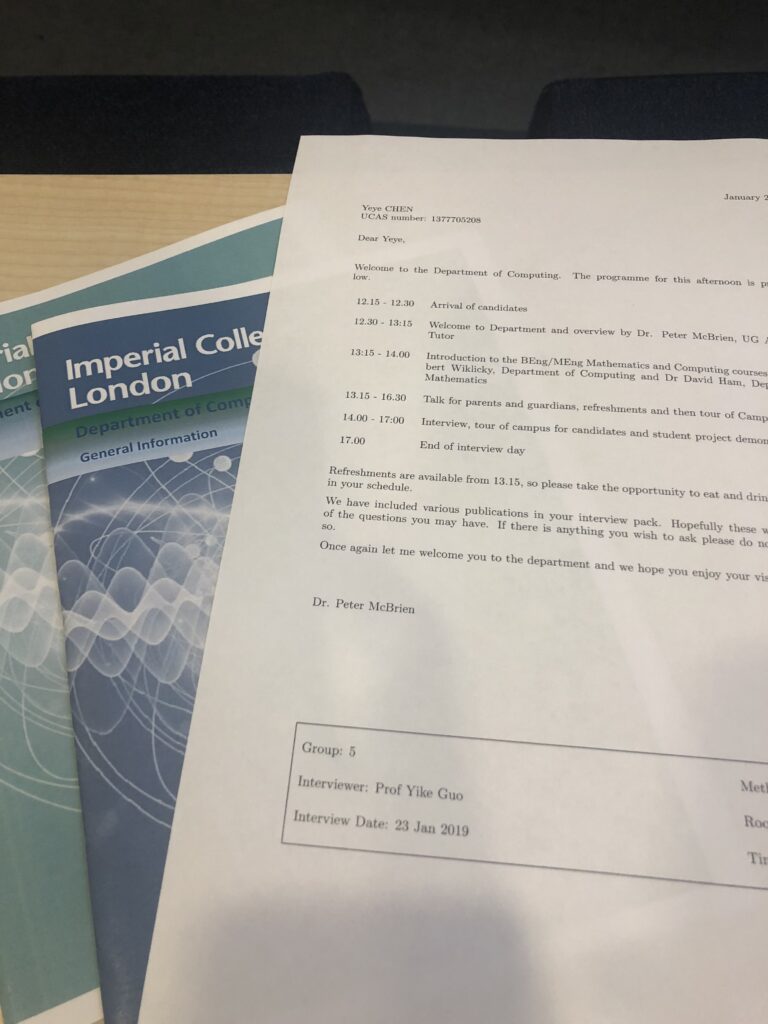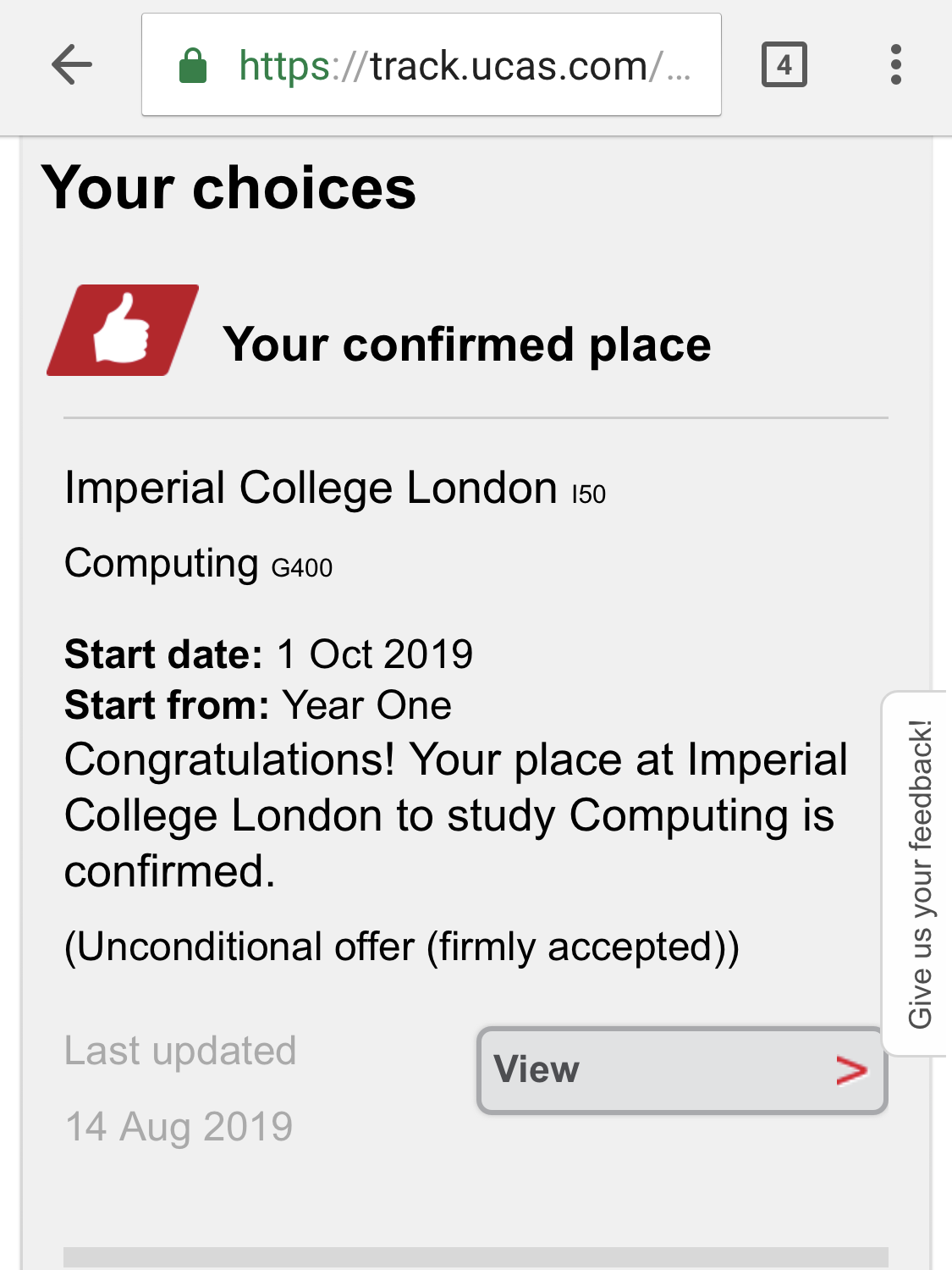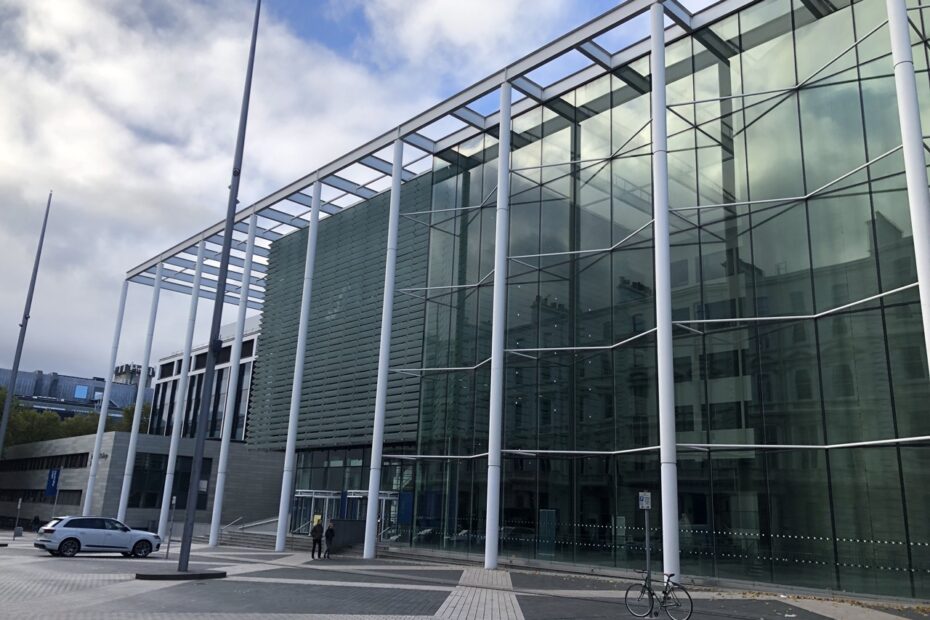January 23, 2019. This day marked my interview at Imperial College London. For me, it was a nervous day. I arrived at the Department of Computing at noon, went to several talks, and then the interviewees were divided into several groups. We were led by senior students from the second and third years to tour the campus. Later, we listened to presentations about various projects from different groups of senior students, such as AI license plate recognition, automatic Rubik’s Cube-solving robots, and more.
One memorable moment was when a senior student from the third year shouted in excitement during the discussions with their group. After figuring out what was going on, our group’s senior student came back and told us that he had secured an internship opportunity at Google. At the time, I didn’t have much concept about work, internships, or companies, but we were all happy for him. My interview was scheduled for 4:00 in the afternoon, and the interviewer was the respected Professor Guo, Yike.


I was extremely nervous, my palms were sweaty. Each person was interviewed individually. When it was my turn, I was called into Professor Guo, Yike’s office. Strangely, the nervousness faded once I entered the office. The professor was friendly and always with a smile on his face. We communicated entirely in English, discussing topics such as why I chose Imperial College, and why I chose to study Computing. He then asked me two maths questions. I remember the first question vividly; it was a problem about infinity. I recalled seeing a similar problem in a maths corner the day before the interview. The question was as follows:

The ellipsis represents the pattern that continues infinitely. The key to this question is to discover that the expression in the yellow box is also equal to 10 because it is an infinity, the error between the expression in the upper layer and the expression in the lower layer is extremely small. In the limit situation, the error is 0. So, if you replace the denominator with 10, you get a linear equation, and it’s easy to solve that x = 20.
I don’t have a very strong memory of the second question; it was about odd and even classifications. I remember stuttering for a moment, but after explaining my thought process to the professor, he gave me a hint, and I successfully solved it too. At the end of the interview, I asked Professor Guo, Yike about his usual work and the future of data science, and he answered to each question.
On the way back to the dorm, I was both excited and anxious. Excited because I had solved both math questions and the first one I had coincidentally seen the day before, feeling very lucky. However, I was worried that I might not have expressed myself well in certain parts of the interview or failed to convey my full thoughts, leaving the professor without a full understanding of my abilities and enthusiasm.
On returning to the dorm, I immediately went to find Duncan because he had also applied for Imperial College but had not yet received an interview invitation. I detailed the day’s process and the interview details to him. We discussed for a long time, and gradually, we saw the sky getting dark. Afterwards, we had dinner together, and the day came to an end.
Later came the A-Level and STEP exams, and in the summer, I received an offer from Imperial College.

Thanks to my family, my father, mother, and sister. Thank you for your unconditional support, which gives me the motivation to continue forward on this journey of life.
